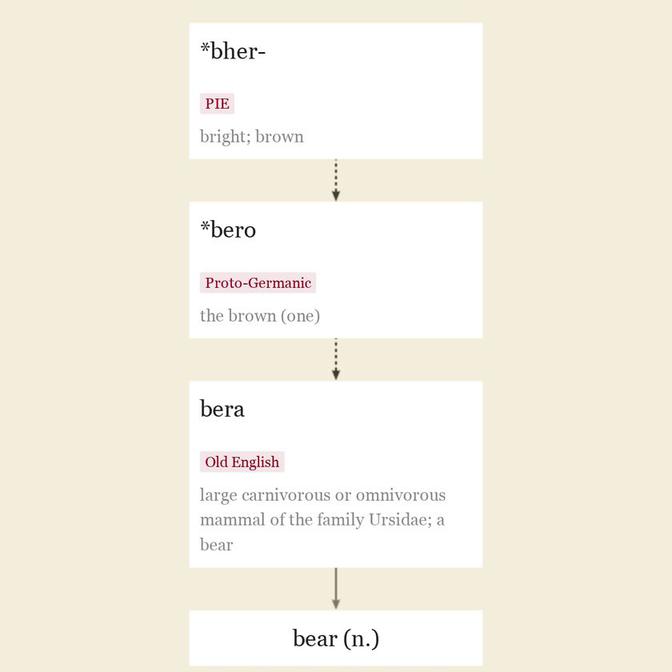Barnard
masc. proper name of Germanic origin, literally "
Entries linking to barnard

"
Greek arktos and Latin ursus retain the PIE root word for "
Used of rude, gruff, uncouth men since 1570s. Symbolic of Russia since 1794. The stock market meaning "
Old English heard "
Meaning "
updated on October 14, 2021